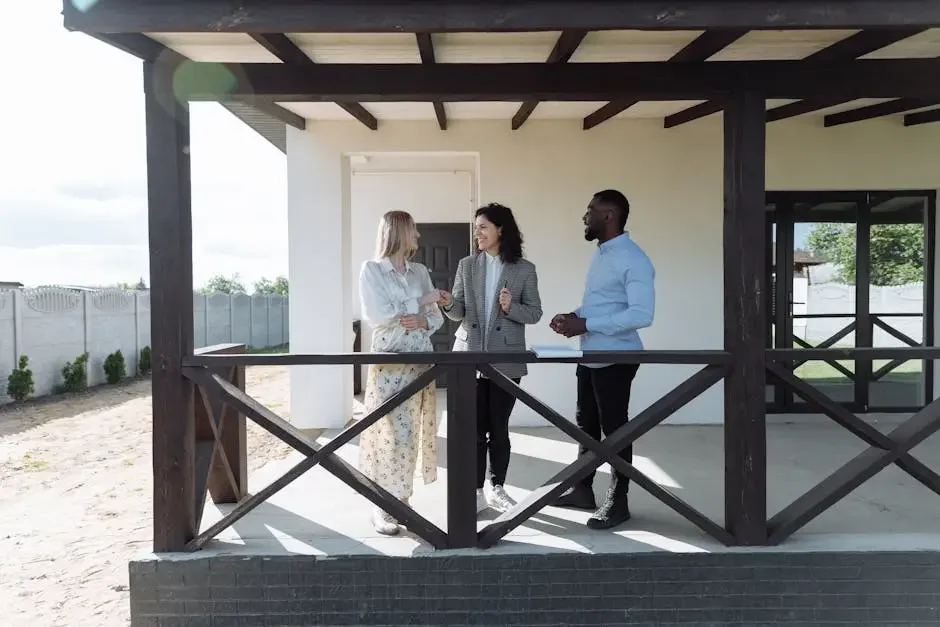Exploring homes for sale can be an exciting journey, especially in a charming area like Williamsburg. However, before diving into the world of open houses and home tours, it’s important to equip yourself with the right questions. Asking the right questions can save you time and prevent future regret.
1. What Is the History of the Home?
Understanding a property's past can give you insight into potential future issues. Ask the seller or agent about previous owners, any renovations, or major repairs. This not only helps identify existing issues but also reveals how the home has evolved over the years. For instance, knowing about any structural changes or renovations can help you assess the quality of work done and evaluate if further improvements might be necessary down the line.
Moreover, inquiring about the property's history can set the stage for discussions about its historical significance. Williamsburg, known for its rich history, often sees homes that have witnessed several renovations or restorations, reflecting different architectural eras. Such insights might also influence your decision if you're interested in homes with character and historical importance.
2. How Long Has This Home Been on the Market?
A home that's been on the market for a long time might indicate underlying issues or perhaps it was initially priced too high. Ask about the reasons behind its duration on the market. It's crucial to discern whether slow movement in properties is a general trend or something specific about the home or neighborhood. Market trends can significantly impact value and resale potential, especially in sought-after areas like Williamsburg.
Also, homes lingering longer on the market might offer more room for negotiation on the price. Sellers might become more flexible if they realize that a property requires adjustments or incentives to attract buyers. Knowing this information equips you with leverage to make a better financial decision in your home purchase.
3. Are There Any Disclosures or Reports Available?
Sellers are often required to disclose certain information about the home. It’s important to review these documents to understand any potential issues you might face post-purchase. Disclosures cover a range of subjects including structural repairs, water damage history, or even neighborhood disputes. Familiarizing yourself with these aspects can provide a wealth of knowledge about what it’s like to live in the home and potentially save you from unexpected surprises.
Moreover, request any available inspection reports that mention key factors like pest infestations or faulty wiring. This step assures that you are making a thoroughly informed decision by being aware of all possible property concerns. Investing time in understanding the disclosures can offer peace of mind and inform your decisions regarding necessary renovations or adjustments.
4. What Are the Local Schools Like?
For families or potential child-rearing plans, understanding the quality of local schools is crucial. Research school ratings and talk to neighbors if possible. Williamsburg offers a variety of highly rated schools, and learning about them might significantly influence your housing decision—whether you currently have children or might in the future.
Local educational institutions often serve as community hubs, impacting neighborhood dynamics and property values. Information about school performance can typically be found online, and reviewing metrics on parent satisfaction can be enlightening. By prioritizing school quality in your home search, you ensure a comprehensive evaluation of your potential living environment.
5. What Is the Neighborhood Like?
Ask about the community vibe, safety, and nearby amenities. Knowing the neighborhood can be just as important as knowing the home itself. A lively community with adequate green spaces, entertainment options, and essential services fosters a better lifestyle and enhances overall living satisfaction in areas like Williamsburg.
Consider taking a few exploratory walks to observe the neighborhood at different times of day. Through personal experience, local discussions, and neighborhood research, you can develop a clearer picture of your potential new surroundings. This context enriches your home-buying narrative, leading from address to community experience, which undeniably contributes to future happiness.
6. What Are the Monthly Utility Costs?
Understanding the average utility costs can help you budget more accurately for your new home. Ask for past bills if possible. While viewing homes, it's beneficial to think long-term about the expenses beyond the purchase price, including electricity, water, and heating/cooling costs.
Various factors, like the size of the home or energy efficiency features, can drastically alter monthly bills. Awareness concerning these costs, along with tips on energy efficiency upgrades, prepares you to manage your expenses effectively and create a cost-efficient living space.
7. Is There Homeowners Association Involvement?
Some neighborhoods come with a homeowners association that can have significant impact on your living experience. Understand the rules, fees, and any restrictions. HOAs can influence everything from property aesthetics to communal resources—and it's crucial to know if they align with your lifestyle preferences.
Review any association documents meticulously, focusing on governance and financial health. Arrive at a balanced judgment by inspecting detailed association reports and understanding the potential benefits and drawbacks of HOA living. This added layer of detail equips you with the foresight necessary to embrace or avoid certain communities based on your priorities.
8. What Is the Seller's Motivation?
Understanding why the seller is moving could give you leverage during negotiations or insights into the property’s condition. If sellers are relocating for a new job or downsizing, they might be more willing to negotiate on price, which could potentially benefit you financially.
Occasionally, sellers have motivations stemming from property limitations or neighbor disputes. Being aware of these issues ahead of negotiations can be beneficial. Additionally, knowing a seller's motivation can help evaluate if a quick sale is feasible or if the property aligns with your timeline goals.
9. Has the Home Had Any Major Repairs?
Inquire about any major repairs or upgrades to assess their quality and consider future maintenance costs. Older homes, especially in historic areas like Williamsburg, might come with charming details, but also maintenance challenges.
Determining the quality of past repairs helps estimate future costs and might spotlight areas needing attention post-purchase. Knowing about recent roof replacements or plumbing updates can save on potential renovations and provide reassurance around the structural integrity of the property.
10. What Is the Home’s Resale Value?
Consider the home’s investment potential by asking about its appreciation rate and market trends in the Williamsburg area. Proactively exploring real estate currents ensures you make a decision both beneficial now and valuable over time.
Insights into property appreciation trends enhance your understanding of potential returns should you decide to sell later. Analyzing nearby development, market demand, and economic growth provides a forecast into property price upticks and stability factors.






![Your Home Buyer Wants To Extend The Closing Date—What Now? [PART 2]](https://images.squarespace-cdn.com/content/v1/61ba4adb6ba40d29dc3f0d6f/1764095999067-R9W4IFJ67D2XTMHXQ5D9/banner.jpg?format=200w)

